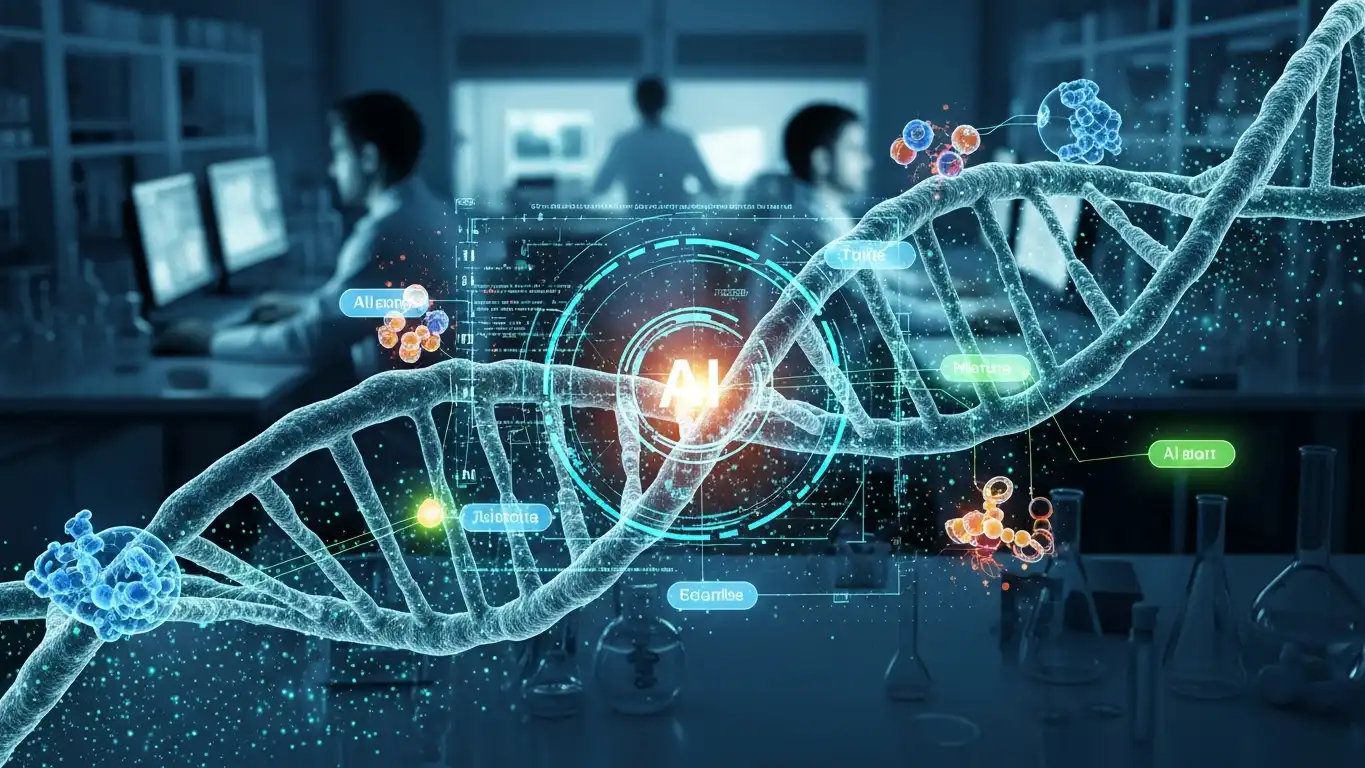Genomics, a realm devoted to deciphering the intricate codes inscribed within our DNA, has undergone a remarkable transformation with Artificial Intelligence (AI) integration. Amid the relentless advance of scientific inquiry, AI has emerged as an invaluable partner in navigating the vast troves of genomic data generated by sophisticated sequencing technologies. This article comprehensively delves into AI’s profound and far-reaching impact on genomics. It delves into the intricate interplay between machine learning, data analysis, and predictive modeling as they unlock the complexities of genetic variations, disease mechanisms, and personalized medical solutions.
AI’s Contribution to Genomic Analysis
The fusion of AI and genomics marks a paradigm shift, amplifying our capabilities in understanding the intricacies of DNA.
Data Management and Processing
The advent of advanced sequencing technologies has propelled genomics into the era of big data. AI algorithms are invaluable in managing and processing these voluminous datasets with unparalleled efficiency, enabling researchers to mine valuable insights from an ocean of genetic information. AI’s knack for spotting patterns within genomic sequences is instrumental in identifying genetic variations associated with various diseases, bringing us closer to understanding the genetic basis of health conditions.
Variant Calling and Annotation
In the intricate web of human genetic variation, AI algorithms are pivotal in accurately pinpointing genetic variants that inhabit our genomes. These algorithms distinguish between harmless mutations and alterations with disease implications. Subsequently, these genetic variants are meticulously annotated, illuminating their potential influence on gene functions and shedding light on the pathophysiology of diseases.
Functional Genomics
AI’s predictive modeling prowess shines as it facilitates the identification of gene functions and their potential contributions to disease pathways. Through complex computational models, AI predicts the roles of specific genes in cellular processes and disease mechanisms. This predictive capability is indispensable in understanding the molecular underpinnings of diseases and identifying potential therapeutic targets.
Precision Medicine and Drug Discovery
AI’s transformative reach extends profoundly into precision medicine and pharmaceutical innovation.
Disease Prediction and Diagnosis
AI’s amalgamation with genomics enables a paradigm shift in disease prediction. By mining vast genomic datasets, AI can discern subtle genetic markers associated with diverse diseases. This holds the potential to predict disease susceptibility even before clinical manifestations emerge, allowing for proactive interventions and personalized treatment strategies.
Pharmacogenomics
AI’s analytical prowess in pharmacogenomics deciphers the relationship between genetic variations and individual medication responses. By analyzing a patient’s genetic profile, AI-guided pharmacogenomics can determine the most suitable medications, minimizing adverse reactions and optimizing therapeutic outcomes.
Drug Target Identification
AI’s influence extends to drug discovery, streamlining a historically intricate process. By scrutinizing the vast expanse of genomic data, AI identifies potential therapeutic targets hidden within the labyrinthine complexity of the human genome. This expedites the identification of promising drug candidates tailored to specific disease mechanisms, accelerating the path to novel therapeutic interventions.
Challenges and Ethical Considerations
While brimming with promise, the integration of AI and genomics also raises critical challenges and ethical considerations.
Data Quality and Privacy
The accuracy and quality of genomic data used to train AI models are paramount. Ensuring that datasets are comprehensive, representative, and bias-free is essential for AI-driven insights to be trustworthy. Moreover, the ethical handling of sensitive patient genetic information, safeguarding privacy, and data security are cornerstones in this realm.
Interpretability and Bias
AI models, especially those incorporating deep learning, can be complex and challenging to interpret. Ensuring transparency in AI-driven genomic analyses is essential to fostering trust among researchers, clinicians, and patients. Moreover, addressing potential biases embedded within genomic datasets is crucial to preventing disease prediction and treatment recommendation disparities.
Ethical Use of Genetic Information
The power of AI in predicting disease susceptibility raises ethical dilemmas concerning the use of genetic information for insurance, employment, and personal decisions. To prevent potential misuse, it is essential to strike a balance between harnessing AI’s predictive capabilities and safeguarding genetic privacy while implementing ethical guidelines.
Conclusion
The intricate dance between AI and genomics is not merely a scientific symphony but a transformative force poised to redefine healthcare and illuminate the mysteries of our genetic code. As AI algorithms evolve, researchers and clinicians stand poised to unlock the intricate secrets hidden within our genes. From predicting diseases to crafting tailored therapies, the union of AI and genomics holds the potential to reshape healthcare by offering personalized interventions and elevating patient outcomes.
Responsible AI deployment and ethical considerations remain paramount as we navigate this uncharted territory. By harnessing AI’s transformative potential with integrity, we chart a course toward a future where technology and biology harmoniously collaborate to better human health and understanding.





